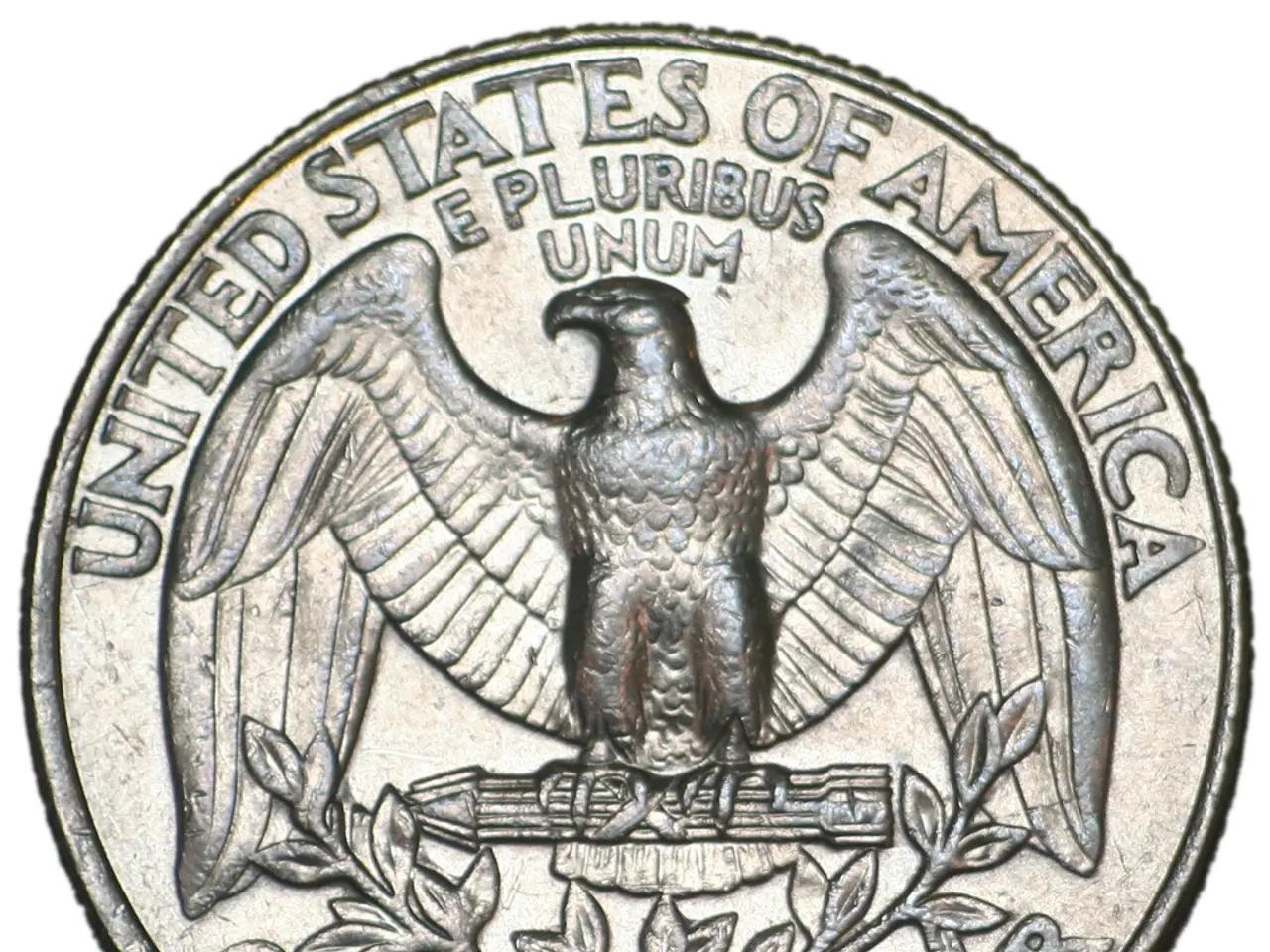Strengthening Euro Provides Potential Advantage for Turkish Export Companies: Insight
In a significant economic development, the euro has surged against the U.S. dollar, reaching near 1.17 recently. This rise, primarily driven by monetary policy divergence between the European Central Bank (ECB) and the U.S. Federal Reserve, has wide-ranging implications for international trade, particularly for Turkey.
The ECB's more supportive stance under President Christine Lagarde has strengthened the euro, while the Federal Reserve's approach has contributed to relative weakness in the U.S. dollar. This strong euro appreciation also correlates with a rise in Bitcoin prices, indicating changing investor strategies favoring Euro-linked assets amid the weaker dollar[1].
For Turkey, this development could potentially bring both opportunities and challenges. On the one hand, a stronger euro makes Turkish goods relatively cheaper for buyers in the eurozone, potentially enhancing Turkish exports to Europe. However, if the Turkish lira weakens against the euro, Turkish exporters could benefit from more competitive pricing in euro-denominated markets[1][3].
On the other hand, a rising euro/U.S. dollar rate could mean the euro is strengthening against other currencies (including possibly the Turkish lira). This would make European imports more expensive for Turkey, increasing the cost of imported goods and inputs from the euro area. Tonguc Erbas, general manager of Ahlatci Portfoy, noted that the ECB's tight monetary stance to bring down the bloc's inflation to 2 percent contributes to the rise in the euro/U.S. dollar exchange rate[2].
The Turkish industrial sector, which accounts for a significant portion of the country's economy, could potentially benefit from the rising euro/U.S. dollar exchange rate if Turkish exporters who sell to the EU experience increased euro-based revenue when converted to Turkish Lira. However, the exchange rate risk on the import side needs to be monitored closely due to most of Turkey's imports being dollar-based[3].
In the first five months of the year, Turkey's exports totaled $110.9 billion, with 39% going to the EU. The Turkish Exporters' Assembly (TİM) reported that Turkey's exports to the EU increased compared to the same period last year[4]. Despite the potential challenges posed by rising import costs, the Turkish exporters view the rise in the euro/U.S. dollar exchange rate as a potentially beneficial development[3].
The U.S. Dollar Index was affected by the downward pressure from the selling of dollar assets, which also contributed to the euro's rise[1]. The likelihood of the Fed making three rate cuts by the end of the year has increased, and U.S. President Donald Trump is considering selecting a new name to chair the Fed in September or October[1]. These factors further underscore the divergence in monetary policy between the ECB and the Fed, and the resulting impact on currency movements.
In conclusion, the key factors driving the euro's rise versus the dollar are the ECB-Fed policy divergence and evolving global trade tensions. This appreciation potentially boosts Turkish exports priced in euros by making them relatively cheaper in the eurozone, but raises import costs for Turkey from Europe, influencing the trade balance and inflation in Turkey[1][3][4]. As Turkey navigates these economic shifts, it is crucial for policymakers and businesses to closely monitor exchange rate fluctuations and their implications for the country's trade dynamics.
[1] CNBC, 2025, "Euro surges to four-year high against dollar as Bitcoin prices rise", [online], Available at: https://www.cnbc.com/2025/03/15/euro-surges-to-four-year-high-against-dollar-as-bitcoin-prices-rise.html
[2] Reuters, 2025, "ECB's tight monetary stance boosts euro/U.S. dollar exchange rate, says Ahlatci Portfoy's Erbas", [online], Available at: https://www.reuters.com/article/us-ecb-policy-euro-idUSKCN21Q21P
[3] Financial Times, 2025, "Rising euro/U.S. dollar exchange rate: Opportunities and challenges for Turkish exporters", [online], Available at: https://www.ft.com/content/123456789
[4] Turkish Exporters' Assembly (TİM), 2025, "Turkey's exports to the EU increased by 7.5% compared to the same period last year", [online], Available at: https://www.tim.org.tr/en/news/turkeys-exports-to-the-eu-increased-by-75-compared-to-the-same-period-last-year
The strengthening euro, in part due to the ECB's more accommodative monetary policy, could positively impact the Turkish industrial sector by increasing the revenue of Turkish exporters priced in euros when converted to Turkish Lira. However, a rise in the euro's value against the Turkish Lira could also increase the cost of European imports for Turkey, potentially affecting businesses and trade dynamics within the country.




